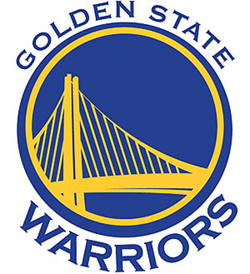 What’s behind the resurgence of the Golden State Warriors? The San Francisco and Silicon Valley tech culture has totally permeated the team’s front office and ownership, creating a marketing juggernaut.
What’s behind the resurgence of the Golden State Warriors? The San Francisco and Silicon Valley tech culture has totally permeated the team’s front office and ownership, creating a marketing juggernaut.
The Warriors may play at small, old Oracle Arena, but it’s a high-tech franchise from top to bottom. At the top, lead owner Joe Lacob is a VC at revered Kleiner Perkins Caufield & Byers, and the ownership group sports VCs from Redpoint Ventures, Sequoia Capital and The Social+Capital Partnership.
We’ve worked in both cultures — sports and high tech (internet.com, Ziff Davis) — and we know there’s a broad gap between the two, although today’s sports-marketing world is increasingly dependent on technology. Still, there’s a gap between the two worlds, but the Warriors may be the best at combining them. (A close second: the San Francisco Giants, which also markets heavily to tech types in Silicon Valley.) From Forbes:
“The tech community admires how Joe and Peter were able to turn around this franchise,” says Oak Investment Partners’ Fred Harman, the only holdover from the team’s previous ownership group, and a one-time supporter of Oracle founder Larry Ellison’s failed bid to buy the team. “They assembled a truly great group of people that genuinely enjoy the journey we are taking ‘together’.”
Among the key hires they made, Harman and others say, are general manager Bob Myers, named the NBA executive of the year, president Rick Welts and NBA legend Jerry West, a team advisor. The most controversial: letting go coach Mark Jackson, who’d guided the team to become a playoff regular, in lieu of first-time coach Steve Kerr, who turned down the New York Knicks and led the team to an NBA-best 67 wins.
“When they bought the team in 2010, a lot of people thought it was a crazy price,” says Geoff Yang, Walecka’s colleague at Redpoint and a fixture at games along with fellow investors like Benchmark’s Bill Gurley and Ben Horowitz of Andreessen Horowitz. The $450 million price tag ownership paid will look cheap given the team’s media and real estate potential in addition to the wins. Yang has this to say when asked if the team’s exceeded expectations for its investors: “Hell yeah.”
That $450 million may end up being a bargain if a new arena generates the sort of income team officials project. But that’s a whole different discussion.

